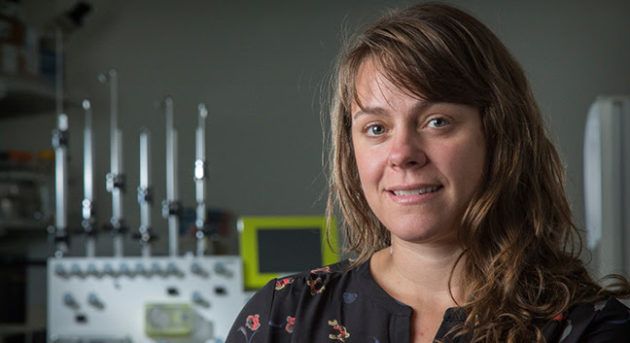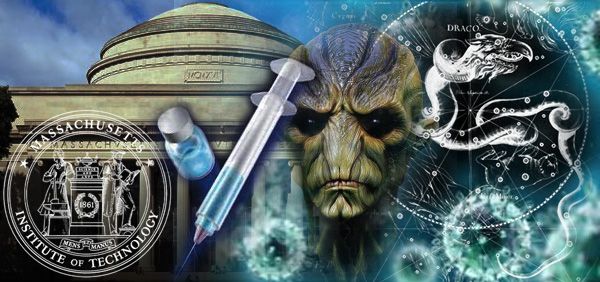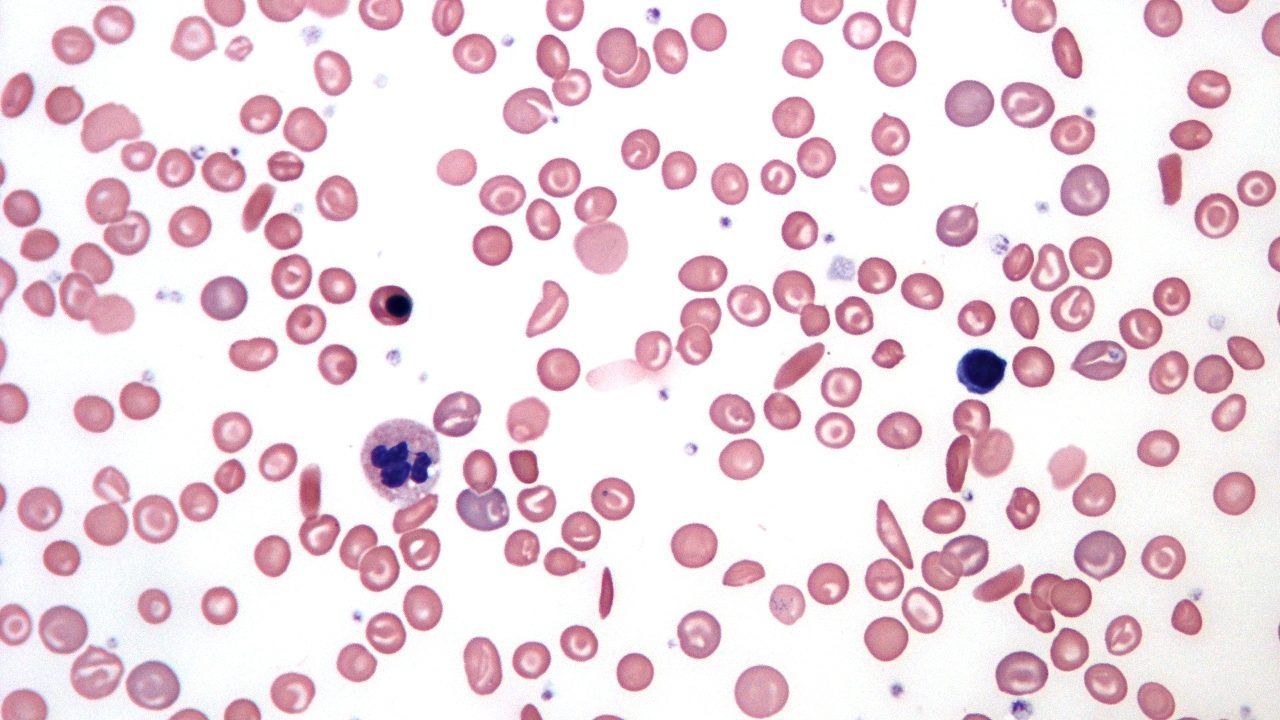Archive for the ‘genetics’ category: Page 474
Nov 1, 2016
Who wants to live forever?
Posted by Ira S. Pastor in categories: aging, bioengineering, cryonics, disruptive technology, DNA, futurism, genetics, health, life extension, posthumanism
Bioquark Inc. (www.bioquark.com) Interview in MoneyWeek
Read whole story: http://moneyweek.com/who-wants-to-live-forever/
Oct 25, 2016
As In The Days Of Noah—New Synthetic Biology Factory Will Design, Build, And Test Exotic New Lifeforms
Posted by Karen Hurst in categories: bioengineering, biological, genetics, robotics/AI
Why compliance exist.
Gingko Bioworks launched their new laboratory last month—an automated “factory” that mass-produces genetically modified organisms. The organism company’s tagline is “Biology By Design,” and it aims to deliver just that in their second foundry, which is equipped with numerous robots that mash together huge batches of genes to churn out new and exotic lifeforms […] Gingko is ambitiously working through the complexities of biology and genetics to create these experimental organisms. The company boasts of a design-build-test cycle: gene-enzyme mixes designed from the company’s scientific database is put together in a hundred different ways, and the “mashup” that services a client’s needs best is accepted as the new organism’s genetic profile. Their new liquid-handling robots like the Echo 525 make large-scale experimentation possible. (READ MORE)
Oct 25, 2016
10 companies that want to make chemotherapy easier for patients — Bioquark Inc.
Posted by Ira S. Pastor in categories: aging, bioengineering, biological, biotech/medical, disruptive technology, DNA, genetics, health, life extension, science
Continue reading “10 companies that want to make chemotherapy easier for patients — Bioquark Inc.” »
Oct 25, 2016
Kernel’s Quest to Enhance Human Intelligence
Posted by Roman Mednitzer in categories: biotech/medical, cyborgs, genetics, neuroscience
Today I’m announcing a $100M commitment to Kernel in an effort to enhance human intelligence and reimagine our future. Unlocking our brain is the most significant and consequential opportunity in history — and it’s time sensitive.
We’re starting to identify the mechanisms underlying neural code and make them programmable. Our biology and genetics have become increasingly programmable; our neural code is next in line. Programming our neural code will enable us to author ourselves and our existence in ways that were previously unimaginable.
I started Kernel in 2016 (read more at the Washington Post) to build the world’s first neural prosthetic for human intelligence enhancement. The investment I’m making in Kernel today will expedite the development of this prosthetic and similarly transformative neurotechnologies.
Continue reading “Kernel’s Quest to Enhance Human Intelligence” »
Oct 25, 2016
DARPA wants to prevent genetic engineering from destroying the world
Posted by Carse Peel in categories: bioengineering, genetics
The idea of a genetic mutation spreading rapidly through a population isn’t as far-fetched a possibility as it once was.
Oct 24, 2016
Newly-developed ‘gene therapy in a box’ could save millions of lives
Posted by Steve Hill in categories: biotech/medical, genetics
Gene therapy in a box could reduce costs and save lives.
 Gene therapy — the process of genetically altering cells to treat disease — is a highly promising process being studied as a way to cure devastating conditions like genetic disorders, HIV, and even cancer.
Gene therapy — the process of genetically altering cells to treat disease — is a highly promising process being studied as a way to cure devastating conditions like genetic disorders, HIV, and even cancer.
But despite the great need for medical advances in these areas, gene therapy can only be performed at a handful of high-tech clinics around the world and require highly trained staff, meaning that it may never be accessible to the millions of people whose lives it could save.
Continue reading “Newly-developed ‘gene therapy in a box’ could save millions of lives” »
Oct 21, 2016
Autism study identifies defect in sufferers’ cells and existing medication could treat it
Posted by Dan Kummer in categories: biotech/medical, genetics, neuroscience

Scientists at Boston Children’s Hospital identified a defect that causes a genetic disorder in 50% of autism sufferers — and two existing classes of drugs that counter the defect.
Oct 19, 2016
CRISPR-based startups rush to IPO and don’t seem to care that we don’t know who officially owns CRISPR
Posted by Shane Hinshaw in categories: biotech/medical, genetics
CRISPR Therapeutics—a Swiss startup hoping to harness the gene-editing technology it’s named after to develop treatments for genetic illnesses like sickle-cell anemia and cystic fibrosis— went public today (Oct. 19), raising $56 million in its initial public offering. It’s the third CRISPR-related biotech to IPO this year despite a pitched battle over who owns the patent to the breakthrough technique.
The market for CRISPR (short for “clustered regularly interspaced short palindromic sequences”) is projected to be worth more than $5.5 billion by 2021, nearly double its current value, according to research firm MarketsandMarkets. The potential of the cheap, easy-to-use technology—which could do everything from creating a mushroom that doesn’t brown to curing cancer by cutting and pasting snippets of DNA—has companies rushing to develop new applications even though no one knows who will ultimately control it.
“It’s a race,” says Fabien Palazzoli, head of biotech intellectual property (IP) analytics for the consulting firm IPStudies. “It’s a race for the IPO, for the scientific results, for the FDA recommendation, for the IP.”
Oct 19, 2016
Humanized organs in gene-edited animals
Posted by Steve Hill in categories: 3D printing, bioprinting, biotech/medical, genetics, life extension
Humanized organs in gene-edited animals is one potential way medicine can deal with the demand for transplant organs.
One potential avenue for research and to help solve the organ shortage is to modify animals to be closer matched to humans in order to have organs capable of being used for transplant. This short paper is an interesting primer into the subject and touches upon the technical and ethical concerns involved here.
It is one possible solution to the problem, however, 3D bioprinting increases in sophistication and other methods are also being developed that would render this approach needless. Still this is an interesting insight into regenerative medicine and one possible path research might take.
#LifespanIO #aging #crowdfundthecure
Continue reading “Humanized organs in gene-edited animals” »















